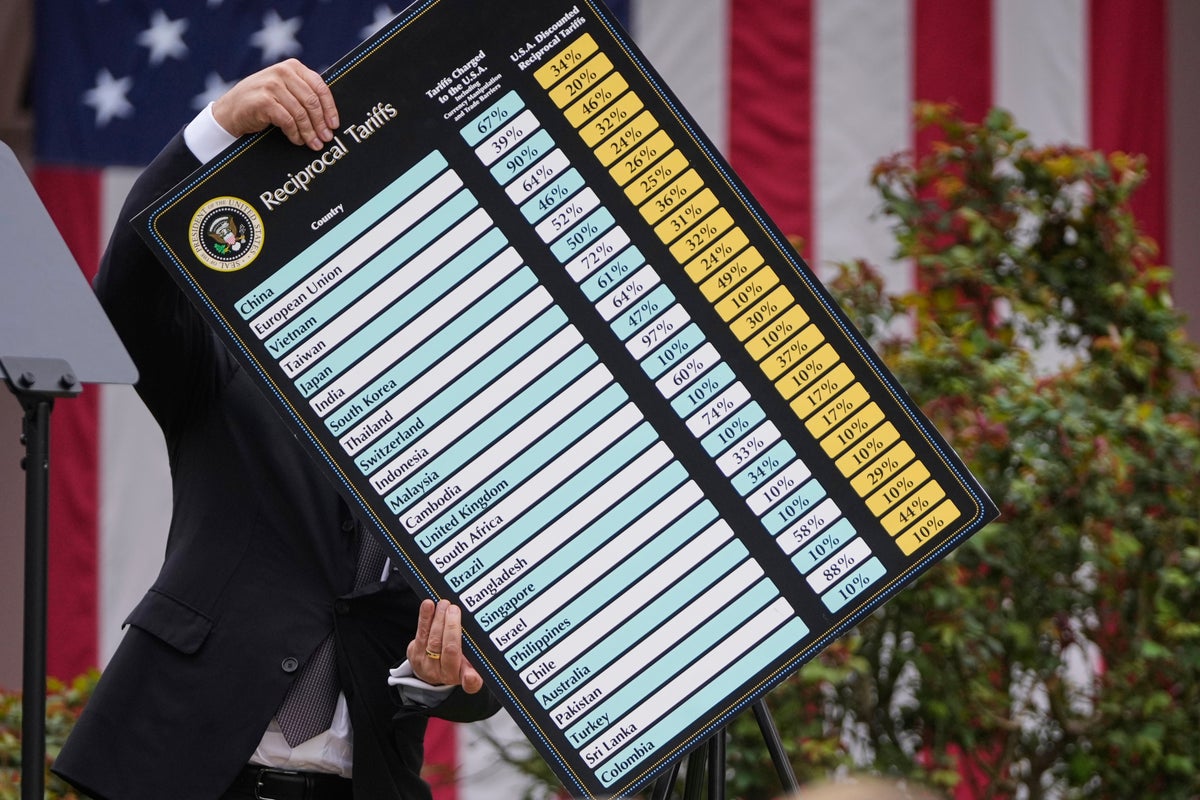As the second Donald Trump presidency gets underway in America, one of the key questions is how his policies are going to affect businesses and, in turn, share prices.
Known for his pro-America stance in most matters, in commerce that will have a big impact as he theatens tariffs of 10 to 25 per cent on imports from other nations and cut regulations on oil production on his first day back in office.
While it’s yet to be fully realised how Trump’s plans may affect the UK directly, there’s no doubt that political alliances are already seeing US-based businesses step further into the limelight, with Elon Musk in particular a regular face – and voice – throughout Trump’s campaign. Among big US tech, though, it’s not just Musk who has been involved, with former White House chief strategist labelling the Tesla boss, Jeff Bezos and Mark Zuckerberg “supplicants” who “surrendered” to the incoming president.
From trade restrictions with China to those potential incoming tariffs, it could be a wild ride in US business over the coming months, big which have been the most immediate winners and losers across notable names Stateside?
Here’s a look at the so-called Magnificent Seven – Alphabet, Amazon, Apple, Meta, Microsoft, Nvidia and Tesla – whose growth has fuelled the stock market rise across the Atlantic over the past two years, how their share prices have performed in the week up to Trump’s presidency and what happens next as the stock markets reopen after Martin Luther King Jr Day.
The company formerly known as Google has seen almost a 16 per cent rise in share price from when Trump was confirmed as having won the US election in early November, and while it has held fairly steady across the past month, the final week of Joe Biden’s administration did see an initial 1.6 per cent rise.
Google’s biggest current question mark comes with a Department of Justice court case, which it filed in autumn last year calling for the breakup of the organisation and sale of certain parts, such as its Chrome browser and Android operating system.
Ongoing discussions and lawsuits surrounding web dominance and possible anti-competitive practices are also factors which could affect the wider make-up of the organisation, while its Gemini product positions Alphabet as one of the leaders in the AI revolution – that could yet make the company even more prevalent in day-to-day lives.
In the futures pre-market ahead of reopening on Tuesday, Alphabet is showing a slight lift of 0.6 per cent.
A 13 per cent rise for Amazon since Trump’s victory has been added to by a more short-term, but still notable, rise of 3.2 per cent in the week before he takes office.
On account of the high number of products Amazon makes available through sellers which may be imported to USA, there’s an obvious focus on what increased tariffs may mean for the e-commerce arm of the company, but pro-business regulations domestically also appear likely to benefit them.
During Trump’s first term there was an ongoing battle of words and wills between he and then-CEO Bezos, but the latter has since stepped down from the role and was at the inauguration ceremony.
Ahead of trading, Amazon is trading 1.1 per cent up.
One of the few giants to not be seeing a notable boost in share price since Trump was confirmed – and the only one to see a fall in the week preceding his arrival.
Right now it’s up less than one per cent in the three months since early November, though that does incorporate a one-month drop of eight per cent following an earlier rise. Over the past week Apple is down almost three per cent.
One of the biggest issues facing Apple right now are reported weak iPhone sales in China, its biggest market, while the next trading update at the end of January will reveal the next steps for the company to take.
The recent fall is set to continue when markets open, with Apple 1.1 per cent down in pre-trading.
Zuckerberg was another in attendance on Monday and the Meta chief has seemed to align himself with Trump as the social media platform dispensed with fact checkers.
Meta also donated $1m to Trump’s inaugural fund amid efforts perceived to be intended to improve relations between big tech and the White House.
Trump last year called Facebook “very dishonest” and said “election fraudsters” would be “sent to prison”, appearing to reference the Meta boss at the same time with a message to “Zuckerbergs, be careful”.
Shares are seven per cent up since the vote came in and flat across the last week ahead of Trump’s arrival. Meta remains flat ahead of Tuesday trading, up 0.1 per cent.
Up four per cent since decision day and 2.4 per cent in the past week, it’s not a big moving moment for Microsoft.
In fact, they might initially appear to be the least-affected of the seven in either direction; while they – like Meta, like Google – donated $1m to the Trump fund, they also did so in 2017, $0.5m then, and the same amount to Biden four years later.
Microsoft leaders did meet with Trump, vice president JD Vance and also Elon Musk ahead of the start of the presidency, The Hill reported, but again that is not out of the ordinary compared with other big tech.
Shares are slightly up in pre-trading, 0.6 per cent.
The second-biggest company in the world behind Apple, Nvidia is down two per cent since Trump’s victory was confirmed – the only one of the seven dropping in that time – but up 1.3 per cent in the past week. In essence the share price has largely held steady since October, as the market waits to see how trade restrictions pan out for the chipmaker.
Export restrictions on AI chips could impact Nvidia significantly, with China on the list of blocked nations, and Nvidia have criticised Washington’s approach to halting supplies of chips around the globe.
Chief executive Jensen Huang was at a Lunar New Year party with employees rather than the Trump inauguration.
Nvidia is up around 0.8 per cent in pre-trading.
Finally, but perhaps most notably, the Musk-led vehicle manufacturer Tesla has been the biggest winner in share price terms since Trump claimed election victory.
A share price of $251 on 5 November 2024 has ballooned to $426 at close of play on 17 January – a massive 69 per cent share price increase in under three months, leaving Tesla’s market capitalisation value at almost $1.4tn (£1.14tn).
Even in the past week, the price is up more than three per cent.
Musk has been alongside Trump at rallies on his campaign trail, was a central figure at his inauguration and has a position leading the administration’s newly formed Department of Government Efficiency, which has reportedly already been sued at least four times. He’s also the world’s richest man, so the power plays and political intertwining are not going away.
Should all that directly translate into share price alterations for Tesla?
One Morgan Stanley analyst suggests the excitement is unrelated to cars but to Tesla’s other products – robotaxis, data, self-driving vehicles and more – while Chris Gannatti, global head of research at Wisdomtree, told Bloomberg he saw it “hard to imagine an upside scenario” at this stage given market constraints to sales. DataTrek Research suggest more than 90 per cent of Tesla’s share price is “tied to what the company might do in the future”.
Ahead of trading, Tesla is up a further two per cent.
Source: independent.co.uk



